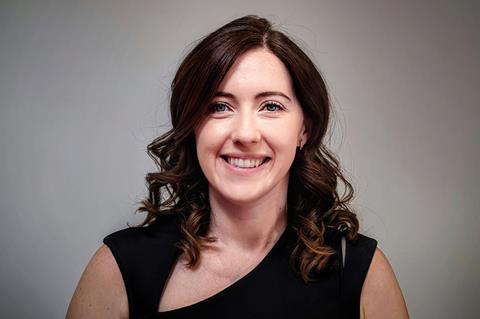Principal lawyer, London

From an early age I knew I wanted to be a lawyer. My father died when I was quite young, and my mother was a single parent. Seeing the struggles she encountered as I was growing up made me want to make life better for people like my mum – and I saw the legal system as a clear way to do this.
Starting out in a very small defence firm, I worked on all kinds of crime, spanning theft to terrorism. Dealing with this fast, high-volume work I learned to make time-sensitive decisions and gained a real breadth of experience working with clients and analysing prosecution papers. It was in this role that I also experienced my first money laundering case and confiscation. Working out a client’s asset profile and evaluating the prosecution’s benefit calculation – essentially the amount an individual profits from their crime – I discovered I had a passion for this type of work.
My interest in the SFO was piqued after I read about its work in a newspaper – and the size and scale of its cases appealed to me. I jumped at the chance to work in its Proceeds of Crime and International Assistance Division when a vacancy came up.
Soon after I started, I worked on a large-scale proceeds of crime case connected to a large money laundering investigation. It had all the hallmarks of an SFO case: multi-jurisdictional, complex and with large sums of money involved. The case also involved a politically exposed person, meaning the complexities of international relations were at the forefront of the investigation. It was a new challenge that I hadn’t experienced before. I loved it.
I then moved to one of the SFO’s prosecution divisions. I worked on the inception of one the biggest victim-led cases that the SFO has ever dealt with: the investigation into London Capital & Finance Plc. Coincidently, our LCF proceeds of crime case was recently in the news with a successful contempt of court case we brought against the former CEO. I gained so much experience from this, from preparing for the arrest and search phase of the case, to handling evidence and examining lines of enquiry at the infancy of the criminal investigation.
'Working out a client’s asset profile and evaluating the prosecution’s benefit calculation – essentially the amount an individual profits from their crime – I discovered I had a passion for this type of work'
Earlier this year, I worked as principal lawyer on an SFO case connected to Brazil’s Operation Car Wash, one of the world’s largest corruption scandals. As a team of eight we traced funds, working with five other jurisdictions, to bring this case to court in record time. Our work ensured we recovered almost $8m – the largest amount seized by the SFO from a single bank account.
I was proud to work on the Chad Oil case. After an energy company bribed Chadian diplomats for its own business, we used our civil recovery powers to recoup its illegal £4.4m profit. This money went directly to the people of Chad, providing support for over 150,000 suffering from food insecurity and malnutrition. My colleagues and I won the 2020 Prosecutors’ Convention Team Award for our work on this case, given to us by the solicitor general.
I have taken cases to the magistrates’ and Crown courts, up to the High Court and Court of Appeal for civil recovery matters. I have also gone out on search and seizure operations. I would not have had the chance to carry out such an exceptional range of work anywhere else.
The hours can be the normal 9 to 5, but the SFO is very supportive of flexible working. I work full-time, flexibly, and have still had time to pursue my passions such as volunteering in my community and preparing for my private pilot’s licence. I might even look at pursuing my commercial pilot’s licence one day.
I have made lifelong friendships here. The camaraderie in the division is second to none and the team and senior management have really supported my development. I have been fortunate enough to work with them on some of the world’s most high-profile bribery and corruption cases.
One of the main questions I get asked is if I run around arresting people. The answer is no – but in my time at the SFO I have made a real difference, recovering over £35m from criminals, stopping them from enjoying the fruits of their crimes.































No comments yet